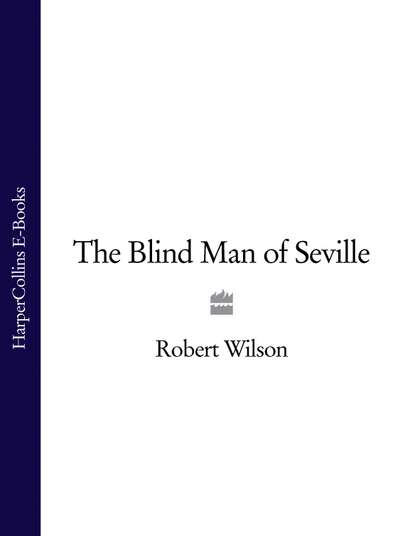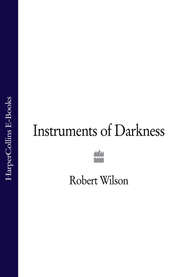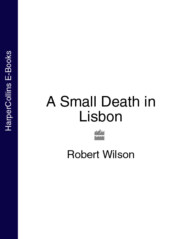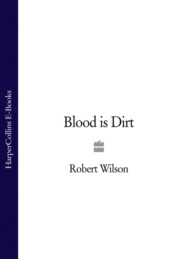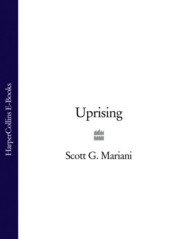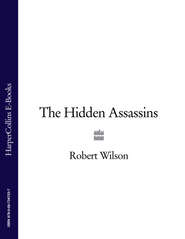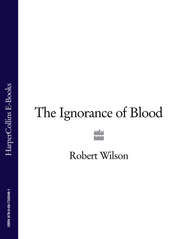По всем вопросам обращайтесь на: info@litportal.ru
(©) 2003-2024.
✖
The Blind Man of Seville
Автор
Год написания книги
2018
Настройки чтения
Размер шрифта
Высота строк
Поля
‘That’s the point. Old houses are crowded and women don’t like sharing their living space unless they choose to.’
‘I like it there. I feel in the centre of things.’
‘You don’t go out into “the centre of things” though, do you? You don’t know anywhere that isn’t between Calle Bailén and the Jefatura. And the house is far too big for you.’
‘As it was for Papá?’
‘You should get yourself an apartment like mine … with air conditioning.’
‘Air conditioning?’ said Javier. ‘Yes, maybe that would help. Clear the air. Don’t the latest models have a button on the side that says “past reconditioned”?’
‘You always were a strange little boy,’ she said. ‘Maybe Papá should have let you become an artist.’
‘That would have solved everything, because I’d have been so broke I’d have had to sell the place as soon as he died.’
The rest of Manuela and Alejandro’s friends arrived and Javier drained his beer. He excused himself from dinner through a barrage of fake protest. Work, he said, over and over again, which few of them understood as they were well cushioned from the hard edges of daily toil.
At home he ate some mussels in tomato sauce, cold. Something left for him by Encarnación, who knew that he couldn’t be eating properly without a woman in the house. He drank a glass of cheap white wine and mopped the sauce up with some hard white bread. He wasn’t thinking and yet his head seemed to be full of a sense of rushing. He thought it was his mind unwinding after the day, until he realized it was more of a rewind, like a tape, a fast rewind. Inés. Divorce. Separation. ‘You have no heart.’ Moving to this house. His father dying …
He stopped it. There was an audible thump in his head. He went to bed with too much happening in his body. He slammed into a wall of sleep and had his first dream, that he could remember, for some considerable time. It was simple. He was a fish. He thought he was a big fish, but he could not see himself. He was fish; aware only of the water rushing past him and a scintilla in his eye, which he closed on, which instinct told him he should close on. He was fast. So fast that he never saw what he instinctively pursued. He just took it in and moved on. Only … after a moment he felt a tug, felt the first rip of his insides, and he burst to the surface.
Awake, he looked around himself, astonished to find that he was in bed. He pressed his abdomen. Those mussels, had they been all right?
9 (#ulink_db11b206-ad6c-5163-b8b5-d8ab38369657)
Friday, 13th April 2001, Javier Falcón’s house, Calle Bailén, Seville
He was up early; the jitteriness in his stomach had gone. He spent an hour on the exercise bike, setting himself some arduous terrain on the computer. The concentration required to break through the pain barrier helped him map out his day. This was no holiday for him.
He took a taxi to the Estación de Santa Justa, and drank a café solo in the station café. The AVE, the high-speed train to Madrid, left at 9.30 a.m. He waited until 9.00 a.m. and called José Manuel Jiménez, who answered the phone as if poised for it to ring.
‘Diga.’
Falcón introduced himself again and asked for an appointment.
‘I’ve got nothing to tell you, Inspector Jefe. Nothing that would help. My father and I haven’t spoken for well over thirty years.’
‘Really?’
‘Very little has passed between us.’
‘I’d like to talk to you about that but not over the phone,’ he said, and Jiménez didn’t respond. ‘I can be with you by one o’clock and be finished before lunch.’
‘It’s really not convenient.’
Falcón found himself surprisingly desperate to talk to this man, but it had to be out of police time. He went in harder.
‘I’m conducting a murder investigation, Sr Jiménez. Murder is always inconvenient.’
‘I cannot shed any light on your case, Inspector Jefe.’
‘I have to know his background.’
‘Ask his wife.’
‘What does she know about his life before 1989?’
‘Why do you have to go back so far?’
This was ludicrous, this battle to speak to the man. It made him more determined.
‘I have a curious but successful way of working, Sr Jiménez,’ he said, just to keep him on the phone. ‘What about your sister … do you ever see her?’
The ether hissed for an eternity.
‘Call me back in ten minutes,’ he said, and hung up.
Falcón paced the station concourse thinking of a new strategy for ten minutes’ time. When he called him back he had a chain of questions lined up like a cartridge belt.
‘I’ll expect you at one o’clock,’ said Jiménez, and hung up.
He bought a ticket and boarded the train. By midday the AVE had delivered him to the Estación de Atocha in central Madrid. He took the metro to Esperanza, which seemed auspicious, and it was a short walk to the Jiménez apartment from there.
José Manuel Jiménez let him into the hall. He was shorter than Falcón but more powerfully built. He held his head as if ducking under a beam or carrying a load on his shoulders. As he spoke his eyes darted about under cover of some heavy, dark eyebrows, which his wife was not keeping under control. The effect, rather than being furtive, was deferential. He took Falcón’s coat and led him down a parquet-floored corridor, away from the kitchen and voices of family, to his study. He walked leaning forwards, as if dragging a sled.
The study had several overlaid Moroccan rugs that covered the parquet floor up to an English-style walnut desk. Lining the walls to the window were the bound books of a lawyer’s workplace. Coffee was offered and accepted. In the minutes he was left alone, Falcón inspected the family photographs sitting on top of a glass-fronted cupboard. He recognized Gumersinda with her two young children. There were none of Raúl. There were none of the daughter beyond twelve years old. The other photographs were of José Manuel Jiménez’s family through the ages culminating in two graduation photographs of a boy and a girl.
Jiménez came back with the coffee. They manoeuvred around each other as Falcón found his way back to his seat and Jiménez got behind his desk. He clasped his hands; his biceps and shoulders swelled under his green tweed jacket.
‘Amongst some old shots of your father’s I came across one of my own father,’ said Falcón, going for the tangential approach.
‘My father was a restaurateur, I’m sure he had lots of photographs of his customers.’
So he knew that much about his father.
‘This was not amongst the celebrity photographs …’
‘Is your father a celebrity?’
It was a chink he had not wanted opened, but maybe, as Consuelo Jiménez had shown, revealing something of oneself could lead to surprising revelations from others.
‘My father was the painter Francisco Falcón, but that was not why —’
‘Then I’m not surprised he wasn’t on my father’s wall,’ Jiménez cut in. ‘My father had the cultural awareness of a peasant, which was what he was.’
‘I noticed he smoked Celtas with the filters broken off.’
‘He used to smoke Celtas cortas, which were unfiltered but better than the dry dung he told us he had to smoke after the Civil War.’





